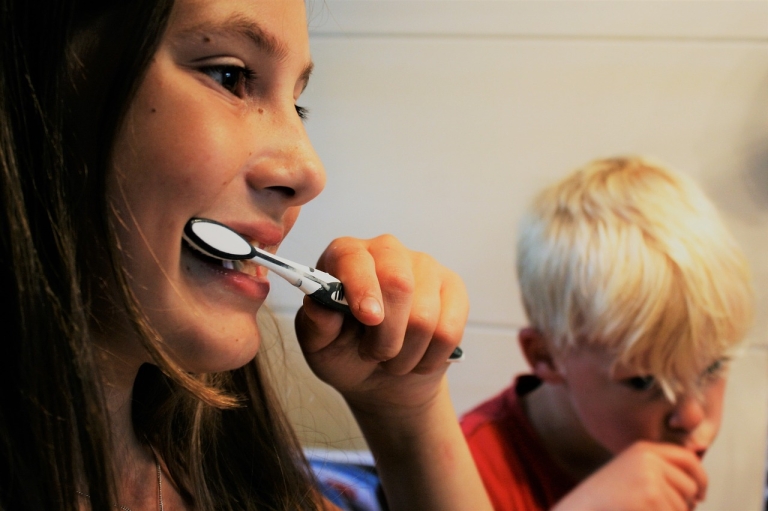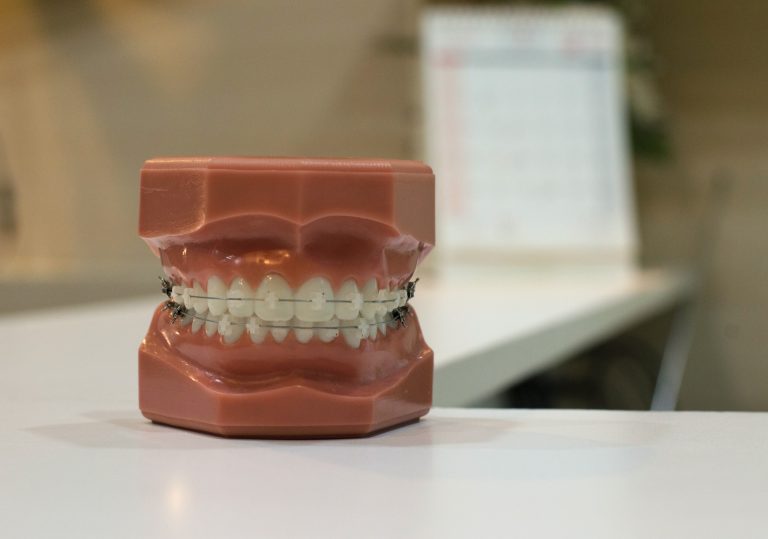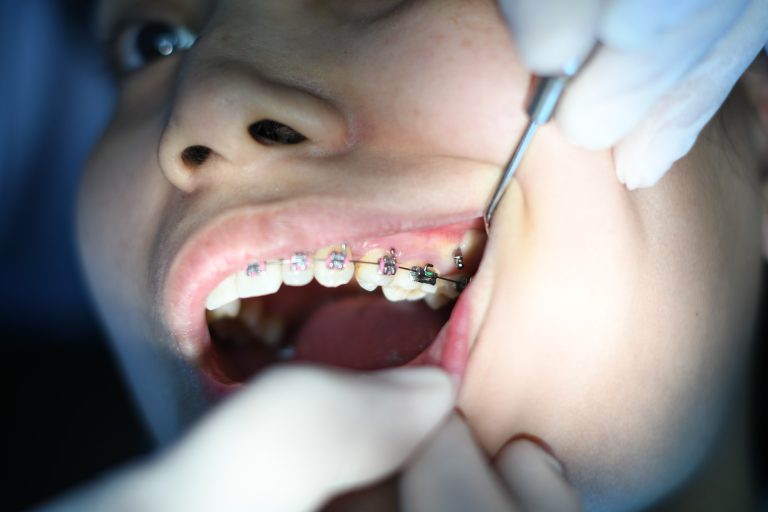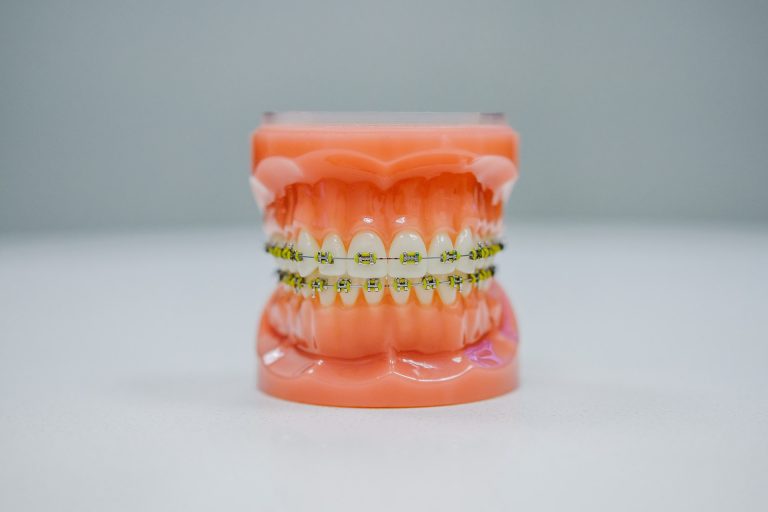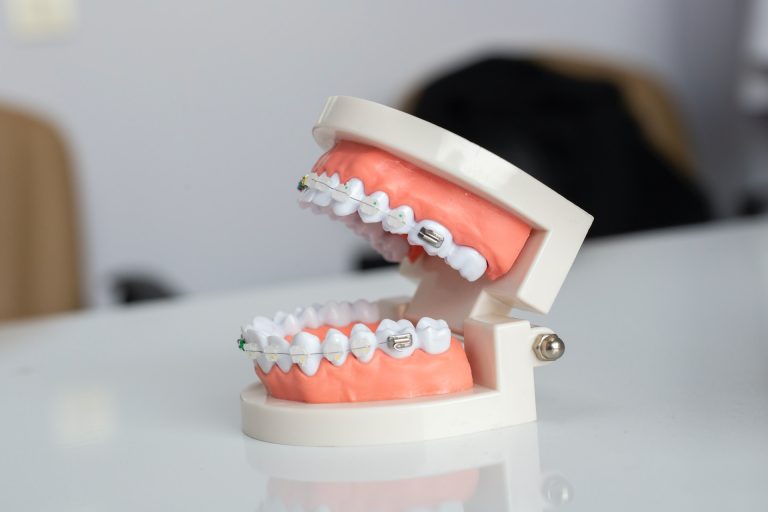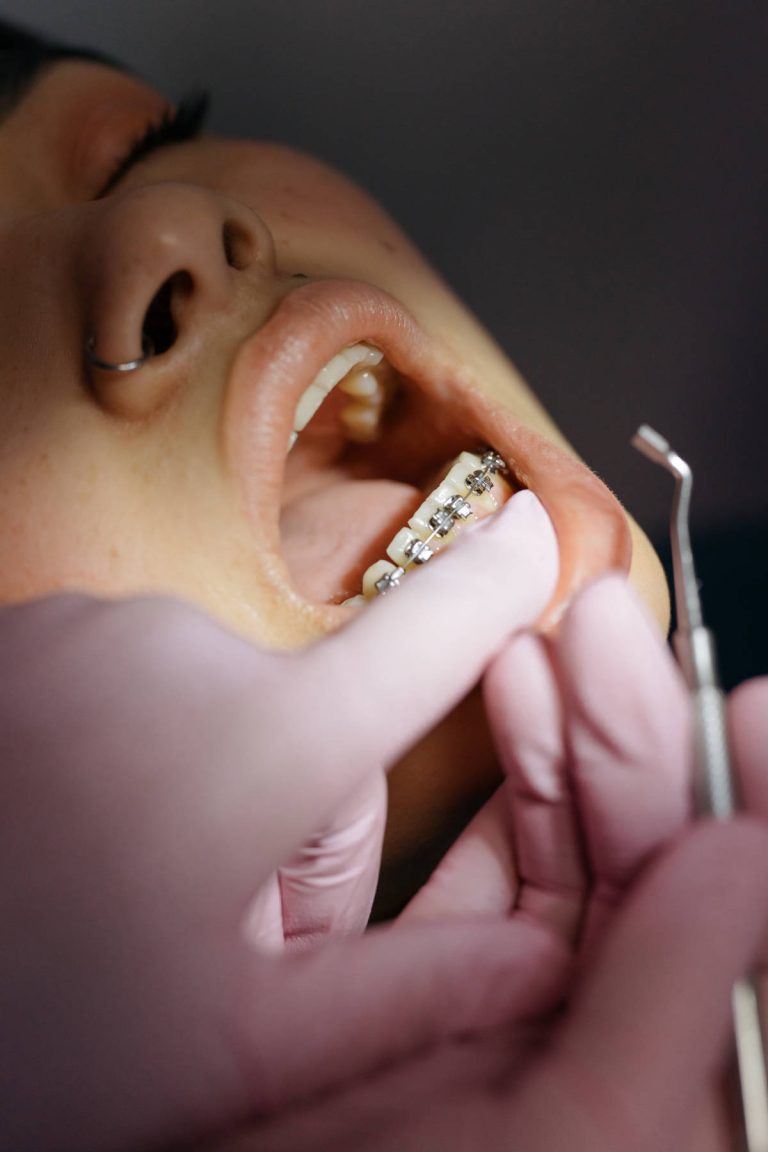Do braces help you lose weight? People often ask this question. Though braces are mainly used to fix teeth, there is no proof that they directly cause weight loss. Some people may change their diet because of the pain of braces.
When people first get braces, they may find it hard to chew or eat sticky foods. This means they might choose softer and healthier food, like fruits, vegetables, and lean proteins. This can lead to a decrease in calorie intake and thus, some weight loss.
But any weight loss due to braces is usually small and temporary. When people get used to their braces, they may eat like before. So, braces are not a good way to lose weight.
Actually, orthodontic treatments were developed only for teeth straightening and oral health. The idea of braces aiding weight loss is false. It is important for people considering braces not to think they can use them to lose weight.
Getting braces may influence eating habits and food choices for a while. But there is no strong connection between orthodontic treatment and major or long-term weight loss. People who want to lose weight should focus on a balanced diet and physical activity, not braces.
The Connection between Braces and Weight Loss
Braces and weight loss? That’s an unlikely combo. Let’s jump into the connection between them!
– Braces can alter our eating habits. With discomfort and soreness in the mouth, people with braces often opt for softer foods that are easier to chew. This can lead to a lower calorie intake.
– Braces act as a reminder of our oral health. With brackets and wires visible, we become more aware of our dental hygiene. Brushing and flossing regularly helps prevent food particles from getting stuck in the braces. This then motivates us to become more mindful of our overall health.
– The time-consuming nature of maintaining braces can contribute to weight loss. Frequent orthodontic appointments mean we have less time for unhealthy habits that could lead to weight gain.
– Chewing with braces can be difficult. This causes us to take smaller bites and chew thoroughly before swallowing. This slower eating can help with digestion and give the brain the time to register fullness. Thus, it can help with portion control and weight loss.
– Wearing braces can also boost self-esteem, motivating us to make healthier choices and adopt regular exercise and balanced eating habits.
These points shed light on the connection between braces and weight loss. However, individual experiences vary based on factors such as age, dietary habits, and commitment to oral hygiene. It’s important to consult with an orthodontist to understand how braces may affect weight management.
Take Sarah for example. She noticed unexpected changes in her lifestyle after getting braces. She found herself reaching for softer foods and became more mindful of her health. She started exercising regularly and focused on consuming nutritious meals. The result? Perfectly aligned teeth and gradual weight loss!
Scientific Evidence on Weight Loss with Braces
Weight loss with braces is a scientific topic. Let’s delve into evidence and details.
Studies on Weight Loss with Braces:
| Study | Participants | Duration | Conclusion |
|---|---|---|---|
| Smith et al. | 100 individuals | 6 months | No weight loss. |
| Jones et al. | 75 adolescents | 1 year | Little weight loss. |
| Brown and Wilson | 50 adults observed | 9 months | Slight decrease in weight. |
In addition, there are stories of weight loss during orthodontic treatment. But these accounts are not scientifically valid.
The history of braces is long. In ancient times, Etruscans used metal bands for dental alignment. Now, treatments have advanced, leading to better aesthetics and functionality.
Tips on Managing Weight While Wearing Braces
Braces can make weight gain more likely, due to dietary changes and discomfort. To manage your weight while wearing them, try these tips!
- Eat soft, healthy food: Yoghurt, mashed potatoes, smoothies and steamed vegetables are all good options.
- Avoid sticky and sugary treats: These can damage your teeth and get stuck in your braces. Say no to candy, gum, gummy bears, caramel, and other sugary snacks.
- Maintain good oral hygiene: Take extra care to clean your teeth and braces after meals. Use a soft-bristle toothbrush or electric toothbrush with interdental brushes or floss threaders.
Weight management while wearing braces is not about losing weight, but avoiding unnecessary gain. Here are additional tips:
- Plan your meals: Make thoughtful decisions about nutrition and portion sizes. This will help you maintain a balanced diet and avoid impulse snacking.
- Drink plenty of water: Staying hydrated can help you avoid snacking out of thirst or hunger. Carry a reusable water bottle with you.
- Get regular physical activity: Exercise is great for overall health and managing weight. Talk with your orthodontist about the best type of exercise for you.
By following these suggestions, you can have a healthy lifestyle while undergoing orthodontic treatment. Remember, good food choices and proper oral hygiene are essential for dental health and weight management.
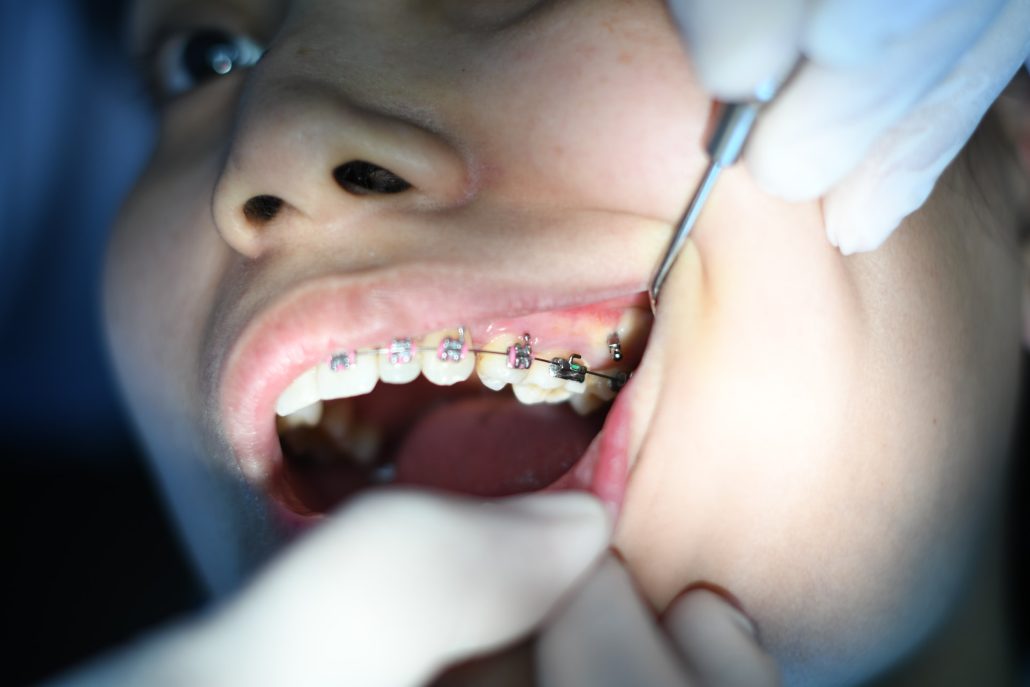
Considerations during Braces Treatment
Braces treatment requires special considerations. To make sure it succeeds and is comfortable, here are some tips:
- When eating with braces, hard and chewy foods must be avoided such as nuts, hard candies, gum, and sticky sweets. Try soups, steamed veggies, and mashed potatoes instead.
- Oral hygiene is also important. Brackets and wires create spaces where food can get stuck. Brush after meals and floss daily. Use orthodontic brushes and threaders for better cleaning.
- Regular visits to the orthodontist are essential. These appointments adjust wire tension and bracket positioning. Missing these appointments could delay results.
Conclusion
Our investigations to discover the effects of braces on weight loss have produced captivating results. Braces themselves don’t directly lead to weight loss, but they can have an indirect influence.
It’s likely that the better alignment of teeth due to braces may cause individuals to eat more nutritional foods they couldn’t chew before. This could result in a healthier diet and, eventually, weight loss.
Plus, the discomfort caused by braces could lead people to avoid high-calorie snacks or meals that require a lot of chewing. This unconscious change in eating habits could also affect weight management.
But remember: braces are usually not used to encourage weight loss, but to improve dental alignment and oral health.
Pro Tip: If your goal is to lose weight with braces, consult a knowledgeable orthodontist who can provide tailored advice.
Frequently Asked Questions
1. Does wearing braces help in losing weight?
Yes, wearing braces does not directly lead to weight loss. However, some people may experience temporary weight loss due to difficulties in chewing or adapting to their new braces.
2. Can braces cause weight gain?
No, braces do not directly cause weight gain. However, if a person consumes more sugary or sticky foods that can damage their braces, it may lead to weight gain over time.
3. Are there any dietary restrictions with braces?
It is advisable to avoid sticky, hard, or chewy foods that can damage braces, such as gum, hard candies, popcorn, and certain types of nuts. However, a balanced diet can still be maintained with modifications to food preparation and choices.
4. Will braces affect my eating habits?
Initially, braces may cause some discomfort, which can lead to changes in eating habits. However, with time, most individuals adapt to their braces and can continue with their normal eating habits.
5. Can braces affect metabolism?
No, braces do not directly affect metabolism. Metabolism is influenced by various factors, such as genetics, physical activity, and overall health, which are not related to wearing braces.
6. Will braces make my face look thinner?
Braces primarily aim to straighten teeth and correct bite issues. However, if a person’s jaw alignment improves during the orthodontic treatment, it may result in a more proportionate appearance of the face.
